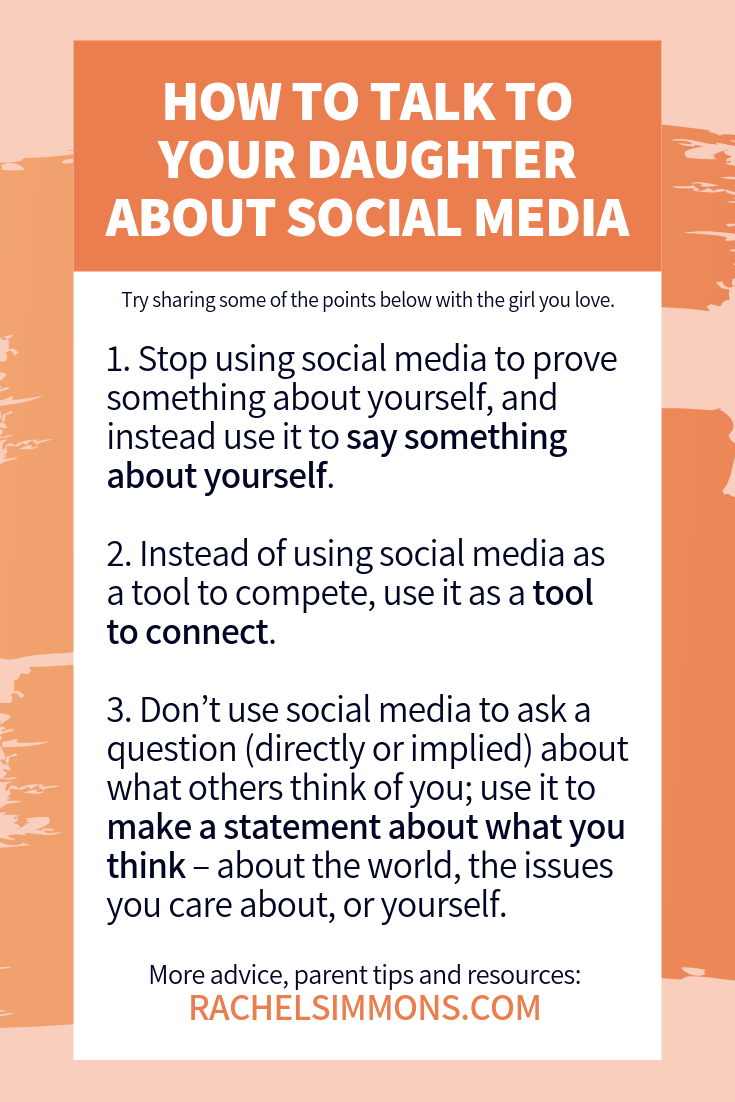Girls and Social Media: What Parents Need To Know
One of the questions I get most often from parents is how to supervise girls' use of social media.
Let’s get two things out of the way: First, I don’t think social media itself is as bad as we make it out to be. It’s the way we use social media that is the problem.
Second, please notice I’m using the word “we.” Helping girls change their relationship to social media isn’t just about what we do for them. It’s about the example we set, too.
In my research I’ve found that social media can be a powerful source of connection for teenagers, especially those who feel misunderstood and alone (isn’t that most of them, at some point?).
But when I travel around the country speaking with teens and parents about social media, I often hear about the many ways social media can become an opportunity to disrespect people, start fights and make people feel excluded and small.
Social media changed girls’ lives by taking things that used to be private and intangible -- like what your friends were doing after school and how many friends someone had -- and making them public and tangible. Now you can see what everyone is up to, where they go on vacation, what they eat, and what they buy. Now you can see who loves who through tagging and streaks. Now you can compare your numbers to someone else’s.
Most harmful of all, you can see only the most perfect version of someone’s life, leading many to think that their own struggles are unusual or wrong.
It doesn’t have to be this way.
Here’s where to start. Try sharing some of the points below with the girl you love. See what she thinks. Debate them. Be open to her perspective, and be ready to defend yours.
5 Social Media Tips For Parents of Girls To Consider
- Stop using social media to prove something about yourself, and instead use it to say something about yourself.
- Instead of using social media as a tool to compete, use it as a tool to connect.
- Don’t use social media to ask a question (directly or implied) about what others think of you; use it to make a statement about what you think – about the world, the issues you care about, or yourself.
- Instead of using social media to amplify yourself, use it to be part of something bigger than yourself.
- Don’t compare your insides to someone else’s outsides. Meaning, if you’re feeling insecure or overwhelmed, don’t compare that to the perfect image someone’s projecting on their social media. You will always lose that game -- and the other person isn’t telling their whole story.
For best results, try implementing these principles in your own life first. I mean, I’m deep into middle age, and there are plenty of times I feel excluded or less-than after taking a deep dive into someone’s perfect-seeming family vacation.


